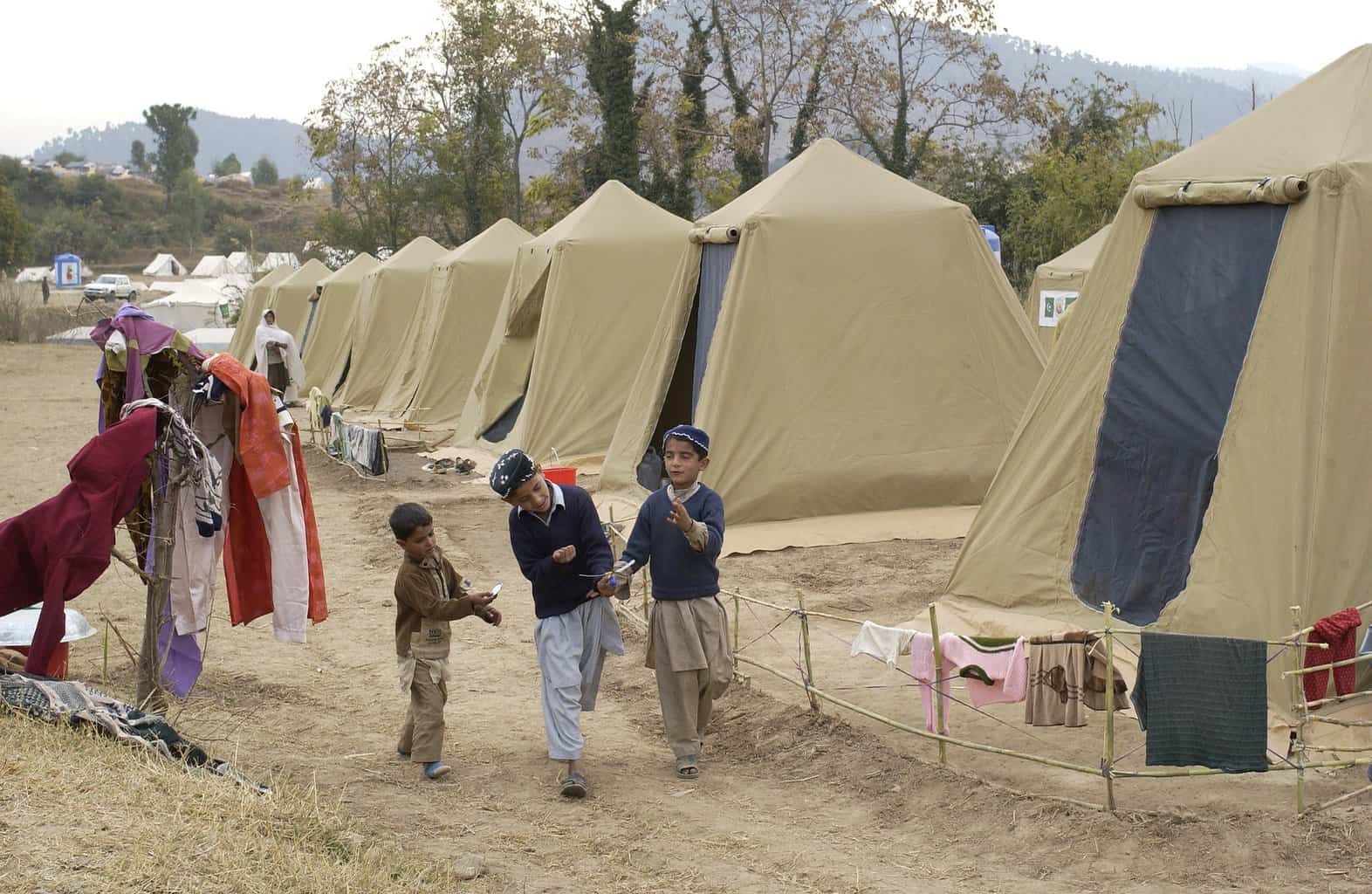Can we help? We have data on the human rights situation for refugees and asylum seekers
HRMI is the first global initiative to track the human rights progress of countries, systematically. If you work with refugees and asylum seekers, or on related issues, our data can help, in several different ways.
We measure the human rights performance of countries on civil and political rights (19 countries in 2019, with many more to come in 2020), and economic and social rights (120-180 countries, depending on the right).
Human rights overviews of countries of origin and host countries
For the 19 countries in our civil and political rights collection, we produce scores to show how well the government respects human rights in 12 areas. These are freely available for use from our data site, and look like this:
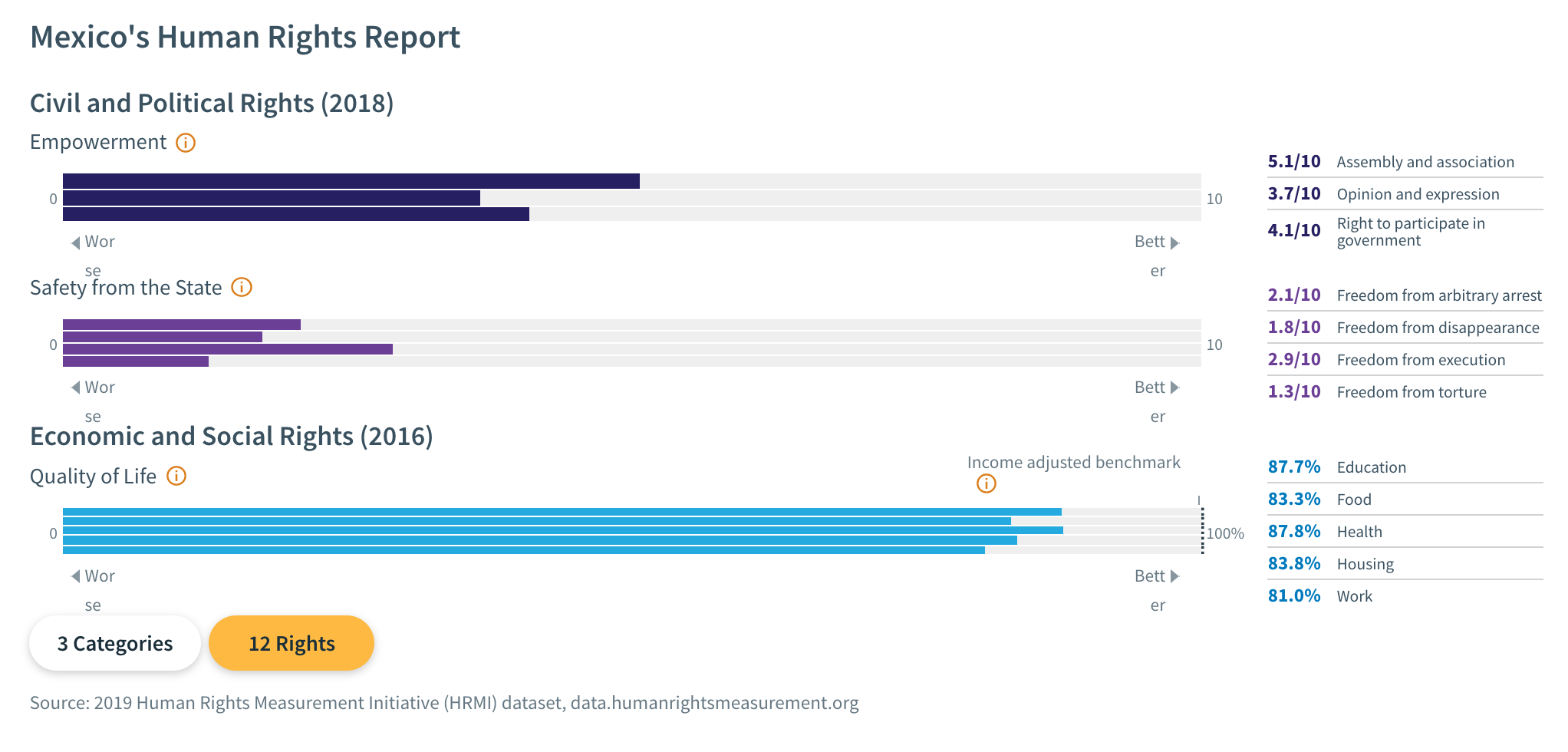
All our data and visualisations are freely available for you to use in your work: reports, submissions, press releases, and so on.
You might find them useful if you are:
- advocating for the rights of refugees hosted by one of the countries we have data on
- arguing that it is not safe for a person to return to one of these countries
- reporting on a country’s treatment of refugees.
You can also see trends over time for each of these rights. For economic and social rights we have around 10 years of data; for civil and political rights, two years so far.
In this image we show that Angola has seen substantial improvement in respect for the right to opinion and expression over the last two years:
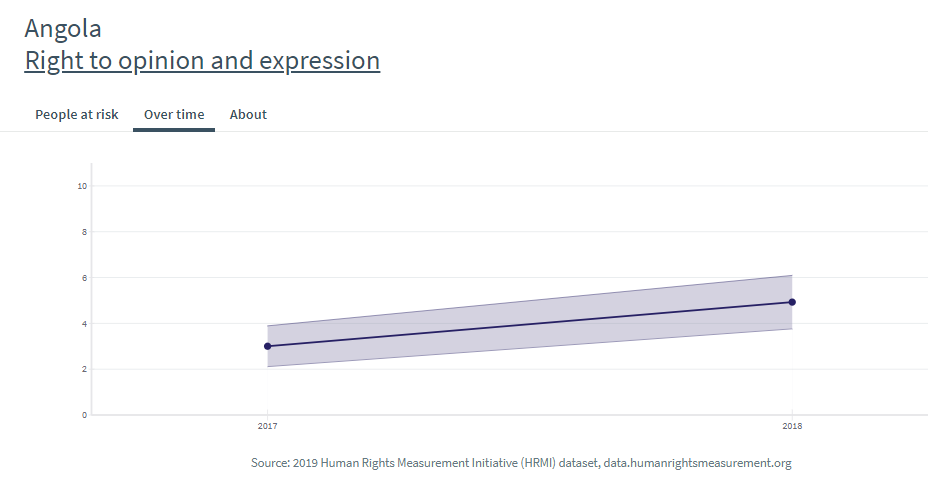
Rights violations against refugees and asylum seekers
For these 19 countries (Angola, Australia, Brazil, Democratic Republic of Congo, Fiji, Jordan, Kazakhstan, Kyrgyzstan, Liberia, Mexico, Mozambique, Nepal, New Zealand, Saudi Arabia, South Korea, United Kingdom, United States, Venezuela, and Vietnam), we also have information on which groups of people are particularly at risk of rights violations.
In our civil and political rights data collection, a survey of experts, run annually around the world, we ask human rights experts which groups they see as being most at risk of having their rights abused or limited. Their answers are represented in 15 word clouds on our data site, going right by right.
For example, below is the word cloud for the Democratic Republic of Congo, on who is at particular risk of violation of the right to education. Among many other groups at risk, 50 percent of our respondents identified refugees and asylum seekers as being at particular risk of violations. You can see this image as part of the series of 15 word clouds for DRC here.
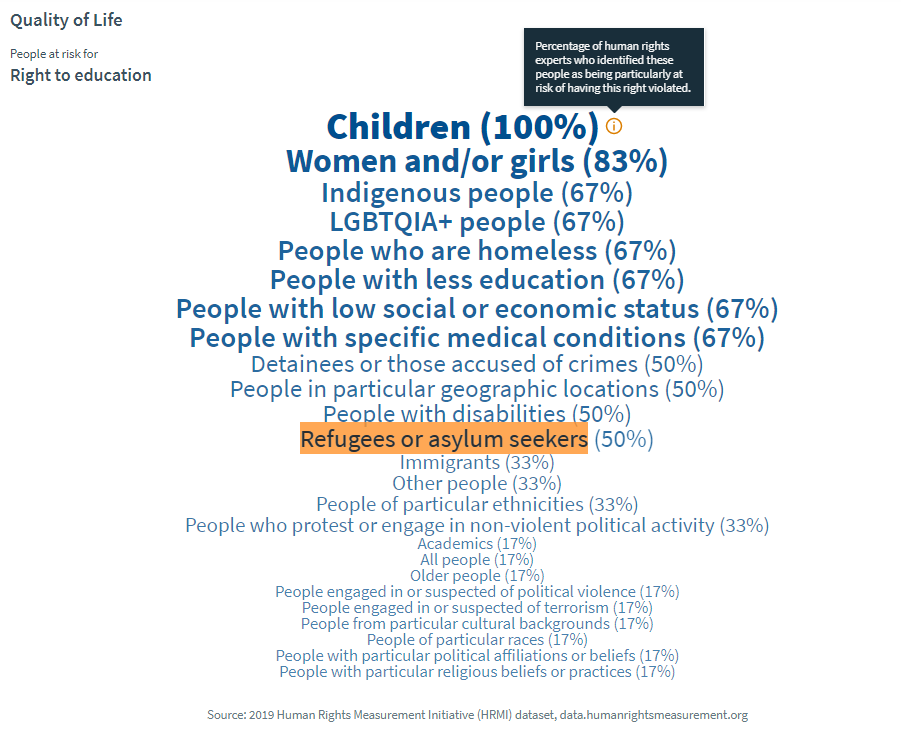
Economic and social rights data
For economic and social rights, we give a score for government performance based on data from international databases, using the SERF index method of taking into account a country’s level of income. So a poor country that uses its resources well may get a high score, and a rich country that lags behinds its peers will get a low score.
You can compare all the countries we have data for, and filter the list by region or other grouping, if you use the ‘rights’ menu. For example, here is a graph of all the countries of the Americas we have data for, in order of how well they perform at using their resources to ensure enjoyment of the right to work (which includes social security) in the Americas. Click on the graph to see it at our data site with larger text.
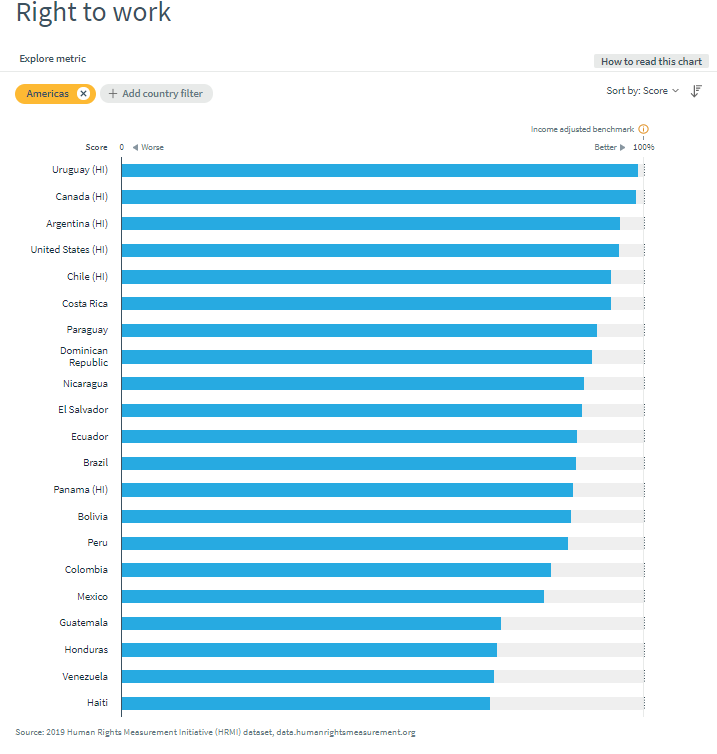
Please note that our scores focus on how well the government of a country is meeting its human rights obligations to use the maximum available resources to ensure fulfillment of the rights. Some countries with a high score in our data may still have many people who don’t experience full enjoyment of their human rights. To show what the experience of people is, you will need to pair our data with data from other sources, often linked from our site.
You can see scores for the five rights we measure (food, health, education, housing, and work/social security), and for the underlying indicators (such as low birth weight, or primary school enrolment).
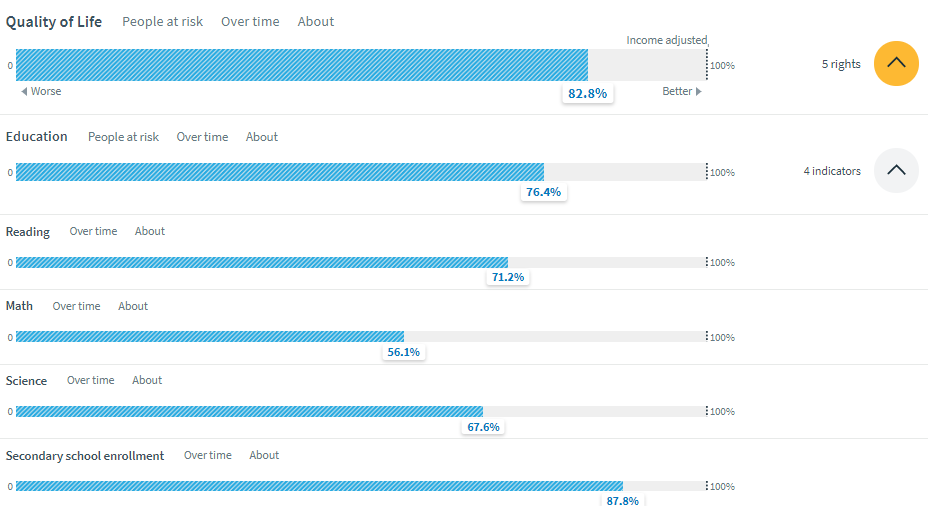
Our data site is multilingual
All our human rights data is available in English, French, Spanish, and Portuguese. You can choose your language at the top of the page on our data site.
Can we help?
HRMI is an independent, non-profit collective of human rights academics and practitioners. We exist to help human rights defenders everywhere, by providing them with robust data they can use to push for improved respect of people’s human rights.
We can help pull together the relevant data for your project, for no cost.
Please contact us and let us know what country and/or right you are most interested in, and we would be delighted to help find what you need.
What else would you like to see?
Our work is constantly evolving and expanding. If there is some particular information you would like us to consider including, please get in touch.


